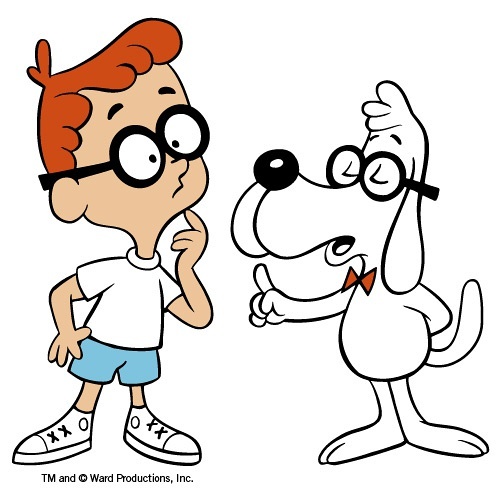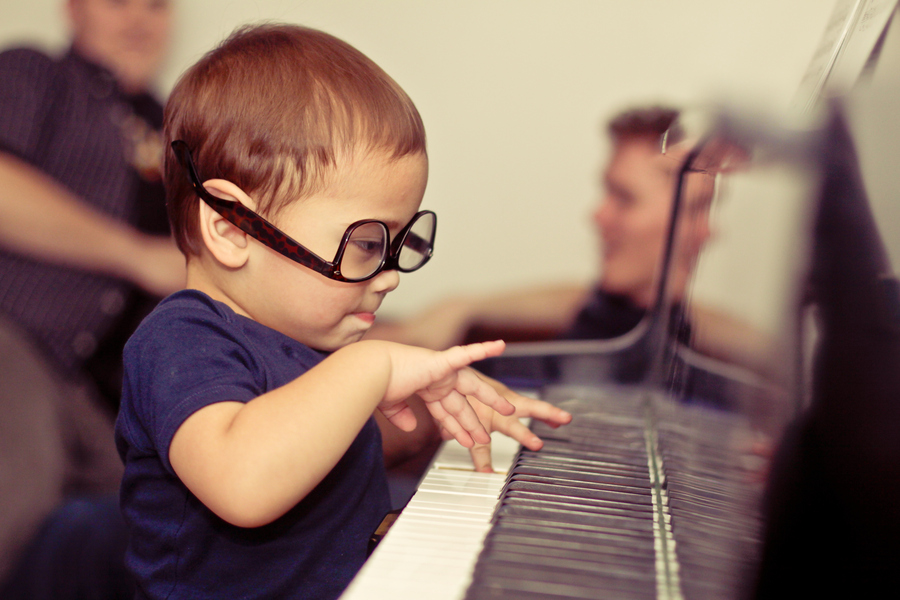双语美文欣赏励志篇:天才养成攻略
Lesson one: New challenges require new ways of thinking
1.面对新挑战,要有新思路
Part car, part jet fighter, part spaceship, Bloodhound SSC aims to be the first land vehicle to break the 1,000mph barrier. One of the key challenges has been to design the wheels. How do you create the fastest wheels in history, make them stable and reliable at supersonic speeds, and with limited resources?
部分汽车、部分喷气式飞机、部分宇宙飞船,猎犬号超级汽车的目标是做世界上第一辆时速突破1000英里的汽车。而这面临的一项关键挑战是车轮的设计。如果换做是你,你会如何在有限的资源下发明出超音速汽车上用的轮子呢?
After much deliberation, and devising ideas that pushed the boundaries of material technology, Mark Chapman, chief engineer of the Bloodhound project said the team decided to take a step back and change the way they were trying to solve problems. “There’s very little we’ve actually developed that’s new,” he says, “what’s unique is how we apply technologies.”
猎犬号项目的总工程师马克·查普曼思来想去,觉得材料还是不够好。最后他和他的团队决定退回一步、换个角度看有没有别的办法。“我们实际创新的东西并不多”,马克说:“我们的独特之处在于应用技术的方式别具一格。”
They adopted an approach called the design of experiments – a mathematical technique of problem solving through doing lots of little experiments and then looking at the statistics all glued together. “All of a sudden, where we’d been knocking our head against the wall for maybe two, three, four months, we came up with a wheel design that would hold together and was strong enough,” he says.
他们采用实验设计的方法做了很多的小实验,综合所得的数据再得出精确设计。“花了三四个月绞尽脑汁做尽各种实验之后,很突然地我们做出了一个大胆的设计:把各种可用的(飞机、飞船所用的)技术都融合在一辆车上,从而使它足够强大。”马克说。

Lesson two: Let evidence shape your opinion
2.观点要用证据来证明
Like his peers, geophysicist Steven Jacobsen from Northwestern University believed that water on Earth originated from comets. But by studying rocks, which allow scientists to peer back in time, he discovered water hidden inside ringwoodite, which lies in the Earth’s mantle, and which suggests that the oceans gradually made its way out of the planet’s interior many centuries ago.
美国西北大学地球物理学家史蒂文·雅各布森曾认为,地球上的水源于彗星。但通过对岩石的研究,他发现地幔的林伍德石里面也藏有水,这一发现表明或许在N个世纪之前,海洋是从地球内部自己慢慢溢出来的。
“I had a pretty hard time convincing others,” he admits. Yet two key pieces of evidence uncovered this year seem to support his point of view. Time will tell whether the new theories are true, and there may be further twists to the tale. “But thinking about the fact that you may be the first person to see something for the first time doesn’t happen very often,” he says. “When it does it’s thrilling.”
“那时候我难说服别的学者相信这个。”史蒂文说。但是今年新发现的两个关键证据似乎支持了他的理论。所以,一个新理论的正确与否可能需要时间来慢慢印证,在被世人接受前可能会经历很多曲折。“但是如果你发现你是第一个发现这个规律的人,且时间又证明你是对的之后,你会倍受鼓舞的。”史蒂文说。
Lesson three: It really is 99% perspiration
3.天才的99%确实是汗水
Sheila Nirenberg at Cornell University is trying to develop a new prosthetic device for treating blindness. Key to this was cracking the code that transmits information from the eye to the brain. “Once I realised this, I couldn’t eat, I couldn’t sleep – all I wanted to do was work,” says Nirenberg.
康奈尔大学希拉·尼伦伯格正在研究治疗失明的新型假体,其中破解眼睛与大脑的信息交流密码是最关键的。“我意识到这一点之后,就吃不下饭、睡不着觉,只想全身心投入工作。”尼伦伯格说。
“Sometimes I’m exhausted and I get burnt out,” she adds. “But then I get an email from somebody in crisis or somebody who’s getting macular degeneration, and they can’t see their own children’s faces, and it is like, ‘How can I possibly complain?’ It gives me the energy to just go back and keep doing it.”
“每次觉得筋疲力尽、江郎才尽的时候,我都会收到一些到正处于危险状态马上要失明的、或是患有黄斑部退化症的病人的邮件,这些人将没办法看清自己孩子的长相、无法看这五颜六色的世界。每当这个时候,我就跟自己说‘我怎么能够抱怨呢’,然后就又动力十足的继续工作。”

Lesson four: The answer isn’t always what you expect
4.结果并不总是和预想的一样
Sylvia Earle has spent decades trying to see the ocean with new eyes. Her “dream machine” is a submarine that could take scientists all the way to the bottom of the deepest ocean floor. What sort of material could best withstand the types of pressure you would encounter thousands of miles below the ocean surface? “It could be steel, it could be titanium, it could be some sort of ceramic, or some kind of aluminium system,” says Earle. “But glass is the ultimate material.” By her estimates, a glass sphere about four-to-six inches (10-15cm) thick should be able safely explore the ocean depths she dreams of exploring.
西尔维亚·厄尔花了几十年的时间试图让人们用新的方式亲近海底,她的“梦想号”潜艇可以让科学家潜入到最深的海底。那种材料才能够承受住深海的巨大压力呢?厄尔说:“我想过用钢、钛、陶瓷等,但最终发现其实玻璃才是终极王者。”根据她的预计,一块10-15厘米厚的玻璃板就能让她进入梦寐以求的那片深海世界。
Glass is the oldest material known to man and one of the least understood, says Tony Lawson, Earle’s engineering director at Deep Ocean and Exploration Research Marine. “It has a higgledy-piggledy molecular structure a bit like a liquid, rather than the ordered lattices often found in other solids. As a result, when glass is evenly squeezed from all sides – as it would be under the ocean – the molecules cram closer together and form a tighter structure.
厄尔的项目技术总监称,虽然玻璃是人类已知的最古老材料,但是我们对它的了解却甚少。“玻璃的分子结构有点像是液体,排列方式没有一般固体的有规律。因此,当玻璃被海洋里的压力从四面八方压迫时,它的分子会被压在一起,形成更紧密的结构。”
Lesson five: A little luck goes a long way
5.偶尔的一点好运也可以维持很久
It was hailed as one of the biggest success stories in the history of space exploration – 20 years of planning ended earlier this year with the Philae lander rendezvousing with Comet 67P over 300 million miles (480 million kilometres) away from Earth.
菲莱探测器被誉为太空探索史上最大跨越之一,历经20年的策划期终于在年初发射并成功在离地球四亿八千万公里的67P彗星上着陆。
The biggest challenge, says Stephan Ulamec, manager of the Philae lander programme, was how to design a probe to land on a body whose makeup they had little knowledge about. “We had no idea of the size, we had no idea of the day-night cycle, which influences the thermal design, we had no idea of the gravity, so how fast would the lander impact, we had no idea how the surface looked,” he says.
据菲莱项目的负责人斯蒂芬介绍,在这20年里遇到的最大挑战是对彗星构造了解较少,不知道该如何设计这个探测器。“我们不知道彗星的昼夜循环情况会影响保热设计,不知道彗星的重力也无法预测探测器着陆后对转速的影响,甚至不清楚彗星表面的样子。”
They needed to create design parameters that could cope with an extremely wide range of possible comet structures – but banked on the comet being a relatively even potato shape with enough flat surfaces for the probe to land on. Even then, not everything went to plan, and two decades of meticulous planning could have failed within minutes at touchdown. Philae's anchoring harpoons didn't fire as planned, and it bounced off the comet before settling onto its icy surface and successfully beaming data back to its relieved creators.
科学家们需要建立尽可能符合多种彗星结构的设计参数,但是还是得寄希望于彗星的表面要够平坦。可即便是花了20年设计、缜密计划过的菲莱还是在着陆的几分钟里有点小失败:“鱼叉”系统未如计划打开,无法准确钉入彗星表面。不过幸运的是,菲莱还是成功地把数据发回了地球。
Lesson six: Genius is indefinable
6.“天才”定义不明
“It’s a funny word: the word ‘genius’,” says Nirenberg. “I just sort of ignore it and just go on with life. You just do what you do independent of whatever label’s attached to you. I don’t know really how else to explain it.”
“天才这个词很有趣”,尼伦伯格说,“我常常忽略这个标签继续走自己的路。只需要抛掉别人在你身上贴的各种标签做自己想做到的事就好了。因为所谓天才真是判断标准不一、无法解释的事情。”
欣赏完了美文,别忘了自己的目标还是学习英语哟。
点击这里免费体验跟外教一对一的练习~
1.面对新挑战,要有新思路
部分汽车、部分喷气式飞机、部分宇宙飞船,猎犬号超级汽车的目标是做世界上第一辆时速突破1000英里的汽车。而这面临的一项关键挑战是车轮的设计。如果换做是你,你会如何在有限的资源下发明出超音速汽车上用的轮子呢?
猎犬号项目的总工程师马克·查普曼思来想去,觉得材料还是不够好。最后他和他的团队决定退回一步、换个角度看有没有别的办法。“我们实际创新的东西并不多”,马克说:“我们的独特之处在于应用技术的方式别具一格。”
他们采用实验设计的方法做了很多的小实验,综合所得的数据再得出精确设计。“花了三四个月绞尽脑汁做尽各种实验之后,很突然地我们做出了一个大胆的设计:把各种可用的(飞机、飞船所用的)技术都融合在一辆车上,从而使它足够强大。”马克说。
2.观点要用证据来证明
美国西北大学地球物理学家史蒂文·雅各布森曾认为,地球上的水源于彗星。但通过对岩石的研究,他发现地幔的林伍德石里面也藏有水,这一发现表明或许在N个世纪之前,海洋是从地球内部自己慢慢溢出来的。
“那时候我难说服别的学者相信这个。”史蒂文说。但是今年新发现的两个关键证据似乎支持了他的理论。所以,一个新理论的正确与否可能需要时间来慢慢印证,在被世人接受前可能会经历很多曲折。“但是如果你发现你是第一个发现这个规律的人,且时间又证明你是对的之后,你会倍受鼓舞的。”史蒂文说。
3.天才的99%确实是汗水
康奈尔大学希拉·尼伦伯格正在研究治疗失明的新型假体,其中破解眼睛与大脑的信息交流密码是最关键的。“我意识到这一点之后,就吃不下饭、睡不着觉,只想全身心投入工作。”尼伦伯格说。
“每次觉得筋疲力尽、江郎才尽的时候,我都会收到一些到正处于危险状态马上要失明的、或是患有黄斑部退化症的病人的邮件,这些人将没办法看清自己孩子的长相、无法看这五颜六色的世界。每当这个时候,我就跟自己说‘我怎么能够抱怨呢’,然后就又动力十足的继续工作。”
4.结果并不总是和预想的一样
西尔维亚·厄尔花了几十年的时间试图让人们用新的方式亲近海底,她的“梦想号”潜艇可以让科学家潜入到最深的海底。那种材料才能够承受住深海的巨大压力呢?厄尔说:“我想过用钢、钛、陶瓷等,但最终发现其实玻璃才是终极王者。”根据她的预计,一块10-15厘米厚的玻璃板就能让她进入梦寐以求的那片深海世界。
厄尔的项目技术总监称,虽然玻璃是人类已知的最古老材料,但是我们对它的了解却甚少。“玻璃的分子结构有点像是液体,排列方式没有一般固体的有规律。因此,当玻璃被海洋里的压力从四面八方压迫时,它的分子会被压在一起,形成更紧密的结构。”
5.偶尔的一点好运也可以维持很久
菲莱探测器被誉为太空探索史上最大跨越之一,历经20年的策划期终于在年初发射并成功在离地球四亿八千万公里的67P彗星上着陆。
据菲莱项目的负责人斯蒂芬介绍,在这20年里遇到的最大挑战是对彗星构造了解较少,不知道该如何设计这个探测器。“我们不知道彗星的昼夜循环情况会影响保热设计,不知道彗星的重力也无法预测探测器着陆后对转速的影响,甚至不清楚彗星表面的样子。”
科学家们需要建立尽可能符合多种彗星结构的设计参数,但是还是得寄希望于彗星的表面要够平坦。可即便是花了20年设计、缜密计划过的菲莱还是在着陆的几分钟里有点小失败:“鱼叉”系统未如计划打开,无法准确钉入彗星表面。不过幸运的是,菲莱还是成功地把数据发回了地球。
6.“天才”定义不明
“天才这个词很有趣”,尼伦伯格说,“我常常忽略这个标签继续走自己的路。只需要抛掉别人在你身上贴的各种标签做自己想做到的事就好了。因为所谓天才真是判断标准不一、无法解释的事情。”
Lesson one: New challenges require new ways of thinking
Part car, part jet fighter, part spaceship, Bloodhound SSC aims to be the first land vehicle to break the 1,000mph barrier. One of the key challenges has been to design the wheels. How do you create the fastest wheels in history, make them stable and reliable at supersonic speeds, and with limited resources?
After much deliberation, and devising ideas that pushed the boundaries of material technology, Mark Chapman, chief engineer of the Bloodhound project said the team decided to take a step back and change the way they were trying to solve problems. “There’s very little we’ve actually developed that’s new,” he says, “what’s unique is how we apply technologies.”
They adopted an approach called the design of experiments – a mathematical technique of problem solving through doing lots of little experiments and then looking at the statistics all glued together. “All of a sudden, where we’d been knocking our head against the wall for maybe two, three, four months, we came up with a wheel design that would hold together and was strong enough,” he says.

Lesson two: Let evidence shape your opinion
Like his peers, geophysicist Steven Jacobsen from Northwestern University believed that water on Earth originated from comets. But by studying rocks, which allow scientists to peer back in time, he discovered water hidden inside ringwoodite, which lies in the Earth’s mantle, and which suggests that the oceans gradually made its way out of the planet’s interior many centuries ago.
“I had a pretty hard time convincing others,” he admits. Yet two key pieces of evidence uncovered this year seem to support his point of view. Time will tell whether the new theories are true, and there may be further twists to the tale. “But thinking about the fact that you may be the first person to see something for the first time doesn’t happen very often,” he says. “When it does it’s thrilling.”
Lesson three: It really is 99% perspiration
Sheila Nirenberg at Cornell University is trying to develop a new prosthetic device for treating blindness. Key to this was cracking the code that transmits information from the eye to the brain. “Once I realised this, I couldn’t eat, I couldn’t sleep – all I wanted to do was work,” says Nirenberg.
“Sometimes I’m exhausted and I get burnt out,” she adds. “But then I get an email from somebody in crisis or somebody who’s getting macular degeneration, and they can’t see their own children’s faces, and it is like, ‘How can I possibly complain?’ It gives me the energy to just go back and keep doing it.”

Lesson four: The answer isn’t always what you expect
Sylvia Earle has spent decades trying to see the ocean with new eyes. Her “dream machine” is a submarine that could take scientists all the way to the bottom of the deepest ocean floor. What sort of material could best withstand the types of pressure you would encounter thousands of miles below the ocean surface? “It could be steel, it could be titanium, it could be some sort of ceramic, or some kind of aluminium system,” says Earle. “But glass is the ultimate material.” By her estimates, a glass sphere about four-to-six inches (10-15cm) thick should be able safely explore the ocean depths she dreams of exploring.
Glass is the oldest material known to man and one of the least understood, says Tony Lawson, Earle’s engineering director at Deep Ocean and Exploration Research Marine. “It has a higgledy-piggledy molecular structure a bit like a liquid, rather than the ordered lattices often found in other solids. As a result, when glass is evenly squeezed from all sides – as it would be under the ocean – the molecules cram closer together and form a tighter structure.
Lesson five: A little luck goes a long way
It was hailed as one of the biggest success stories in the history of space exploration – 20 years of planning ended earlier this year with the Philae lander rendezvousing with Comet 67P over 300 million miles (480 million kilometres) away from Earth.
The biggest challenge, says Stephan Ulamec, manager of the Philae lander programme, was how to design a probe to land on a body whose makeup they had little knowledge about. “We had no idea of the size, we had no idea of the day-night cycle, which influences the thermal design, we had no idea of the gravity, so how fast would the lander impact, we had no idea how the surface looked,” he says.
They needed to create design parameters that could cope with an extremely wide range of possible comet structures – but banked on the comet being a relatively even potato shape with enough flat surfaces for the probe to land on. Even then, not everything went to plan, and two decades of meticulous planning could have failed within minutes at touchdown. Philae's anchoring harpoons didn't fire as planned, and it bounced off the comet before settling onto its icy surface and successfully beaming data back to its relieved creators.
Lesson six: Genius is indefinable
“It’s a funny word: the word ‘genius’,” says Nirenberg. “I just sort of ignore it and just go on with life. You just do what you do independent of whatever label’s attached to you. I don’t know really how else to explain it.”
欣赏完了美文,别忘了自己的目标还是学习英语哟。
点击这里免费体验跟外教一对一的练习~
 六年级下册英语书
六年级下册英语书 六年级上册英语书
六年级上册英语书 五年级下册英语书
五年级下册英语书 五年级上册英语书
五年级上册英语书 四年级下册英语书
四年级下册英语书 四年级上册英语书
四年级上册英语书